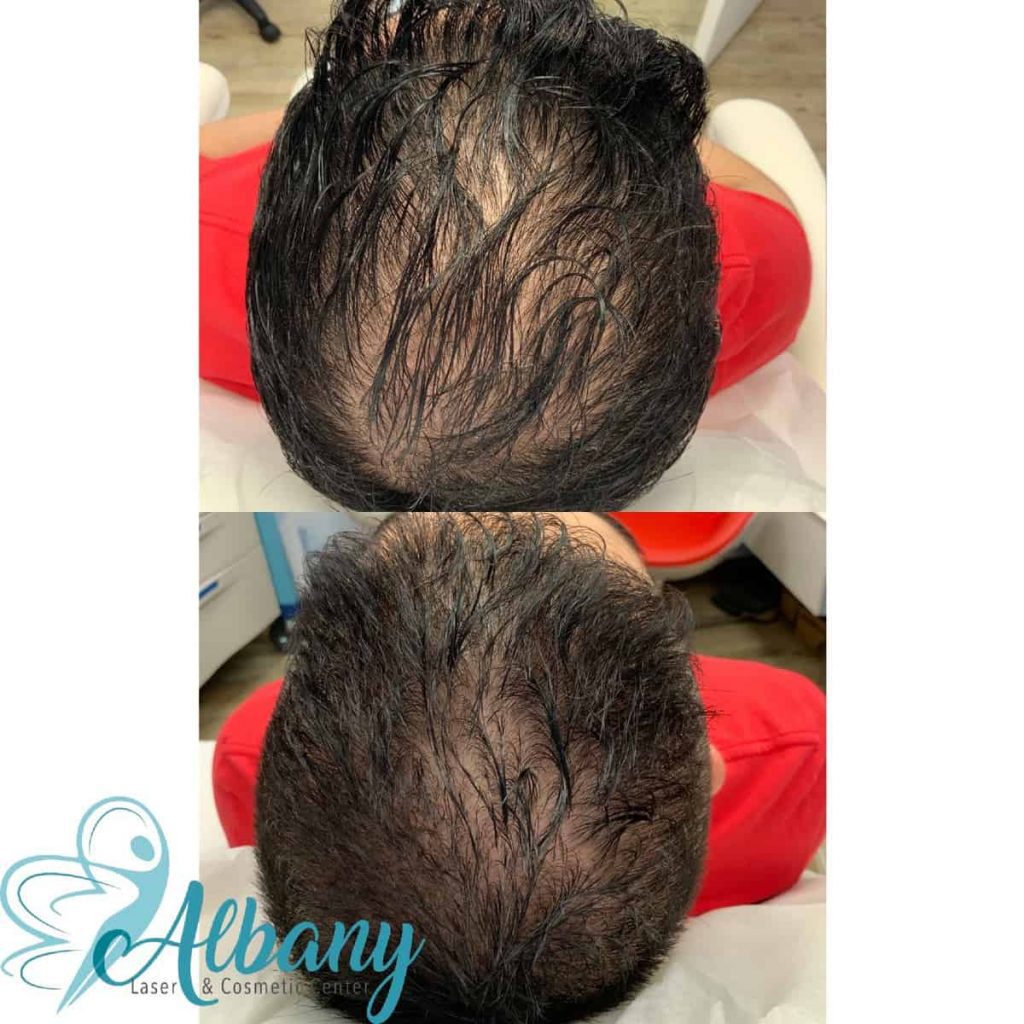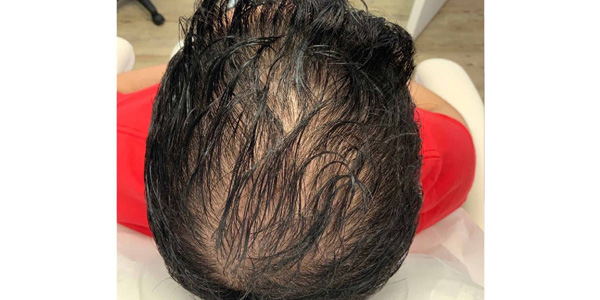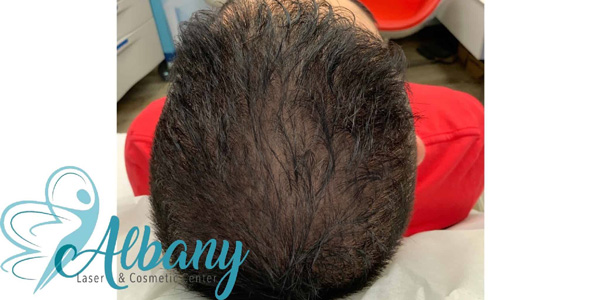Case # 1048
Some effective treatments for hereditary hair loss are available. These treatments work on either reversing hair loss or slowing its rate. Besides hair transplant surgery, medication combined with laser therapy has shown promising results.
Medication for Hair Loss
Some cases of hair loss are due to underlying disease or as a side effect of one or more medications. Therefore, it is essential to get to see your family doctor before contacting us to be able to exclude any underlying causes, such as hormonal unbalance. This case focuses on hereditary baldness (pattern baldness). The most common options include the following:
- Minoxidil (Rogaine). This medication is available as 2% over the counter and 5% with RX only. The solution of foam form should be applied directly on the scalp skin once or twice daily a day. The new formula has been developed for women as foam and should be applied to wet hair. It might take up to 6 months to see a difference, and the treatment should be continued to maintain the results.
- Other medications. Other oral options include spironolactone (Carospir, Aldactone) and oral dutasteride (Avodart) and Finasteride (Propecia). These medications should be prescribed and monitored by your family physician.
Our Protocol
We rely on new technology to help to slow down hair loss and to restore fallen hair. The technology focuses on strengthening the follicles through microneedling and laser therapy with Fotona ER-Yag laser and low-energy LED light.


